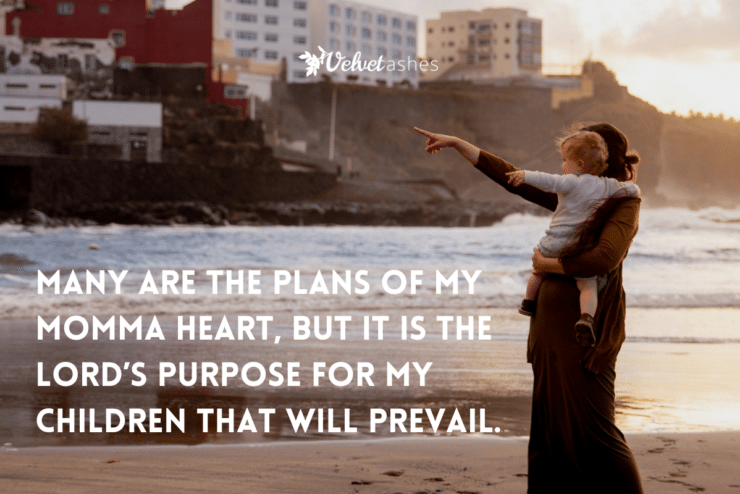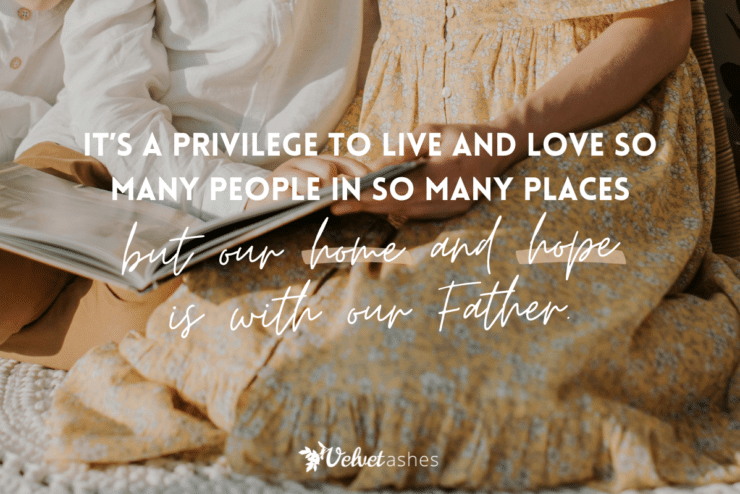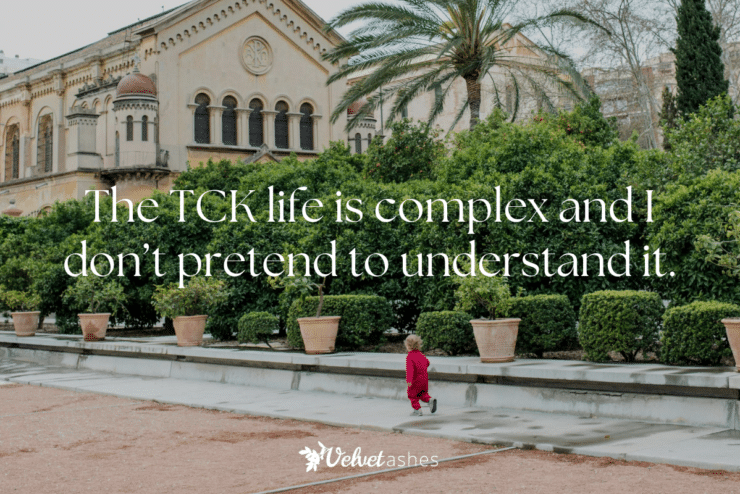Ariel, in The Little Mermaid, sings, “Looking around here, you’d think she’s got everything,” as she takes in her collection of trinkets and treasures in her underwater home. There’s a mixture of contentment and longing in her voice as she observes the life around her. We see the tension of (un)belonging in considering who is the “you” in the song. From whose worldview does she have ‘everything’? It would seem from the ones who don’t live there or know her story completely.
This lyric resonates with me when I think about how Third Culture Kids (TCKs) sometimes compare their lifestyles and upbringings with others who have not had similar ones to theirs. Sometimes there is a longing like Ariel’s, that perhaps another place or situation or status would be better even though everyone is looking into the TCK’s world thinking it’s fascinating and complete.
As a Third Culture Kid, I have had these moments like Ariel of wondering if my life overseas was one in which people thought I had “everything”—the privilege of travel, language(s) acquisition, and cross-cultural adventures. When visiting my communities back in my passport country, the US, I sometimes heard, “How exciting you get to live in that country,” or “You’re so lucky that you get to experience those things abroad.” Sometimes there wasn’t a way to explain the both/and of living between and among worlds, feeling like I didn’t truly belong to any community – fully.
In my global moves I have learned over and over again that perspective about ‘status’ and belonging can vary from person to person, from culture to culture, from country to country. Why do we invest so much energy into equating (or conflating?!) belonging with status?
Growing up as a diplomat kid, I navigated different understandings of ‘status’ in several contexts. For example, having access to US military bases in order to buy American candy gave me some bartering leverage in my international school cafeteria. And yet that ‘privilege’ didn’t give me access to all the social ‘clicks’ I so desperately wanted to be a part of. In Japan, I remember being embarrassed about our family’s decades-old Mitsubishi in the school parking lot surrounded by my peer’s family’s Mercedes and BMWs. Status felt very different in that environment compared to other countries I had lived in.
Coming back to the US for university, I encountered other situations of not feeling like I belonged or fit in. From pop culture misunderstandings to name brand differences, I felt like I was always “behind” in what was “in.” Post-university life created even more markers of what it meant to be “successful”, like how big your house is or what kind of vacations you took! Different expectations and standards of “what is the good life” sucked me into American consumerism. I was collecting gizmos and gadgets of plenty!
The wakeup call was when I moved back overseas to teach English and I could only take two suitcases with me. Status did not equate to materialism where I lived. Status was measured by intangibles: English language fluency, education opportunities, and ability to travel. In a parallel world, I was rich in status.
As I think about the many ways I show up in this world as friend, sister, daughter, employee, neighbor, citizen, I reframe my status of belonging in how I contribute and care for those in my communities.
A wish to belong no longer frames my desire to be at every event – or be invited to every event. My sense of belonging isn’t complete in comparing or collecting. Rather, it’s both an intention and understanding that my life experiences will be applied in whatever context they need to be. It’s a peace that the status of already belonging isn’t dependent on things, abilities, or opportunities. It’s a peace that we, as unique human beings, have the purpose to give and receive in our circles of belonging in ways that have shaped who we are.
Have you had to reframe your ideas of status and belonging?





Megan, thank you so much for sharing these thoughts. I’ve lived as a single overseas for most of the past four years and the team of expat coworkers I have has changed every year. In addition, there are a number of folks I see just once a year. I’m facing a home assignment this summer followed by six months in a new part of the country in which I serve. You wrote: ‘I reframe my status of belonging in how I contribute and care for those in my communities.’ I hope I can keep this perspective this year.
Hi Annie – thank you for taking the time to share! It sounds like you have several upcoming transitions this year and I hope that you find your sense of belonging in both local and global places AND people. Blessings on the journey!